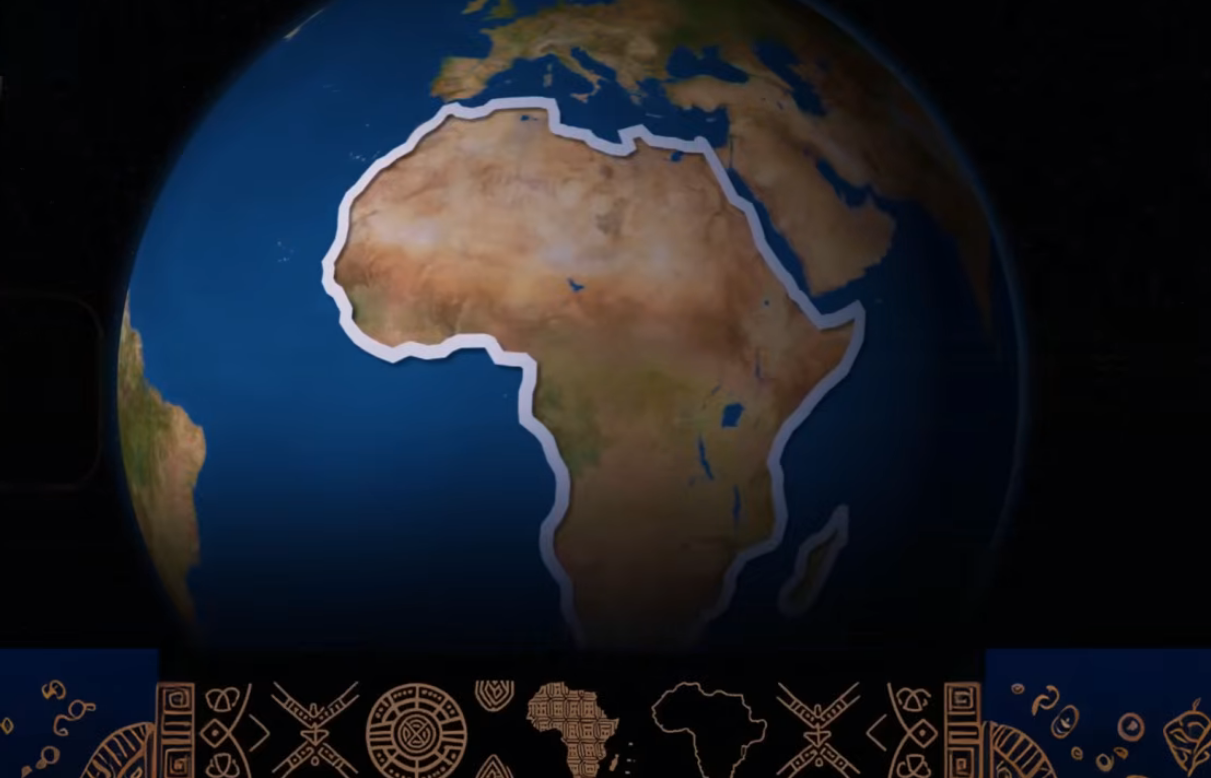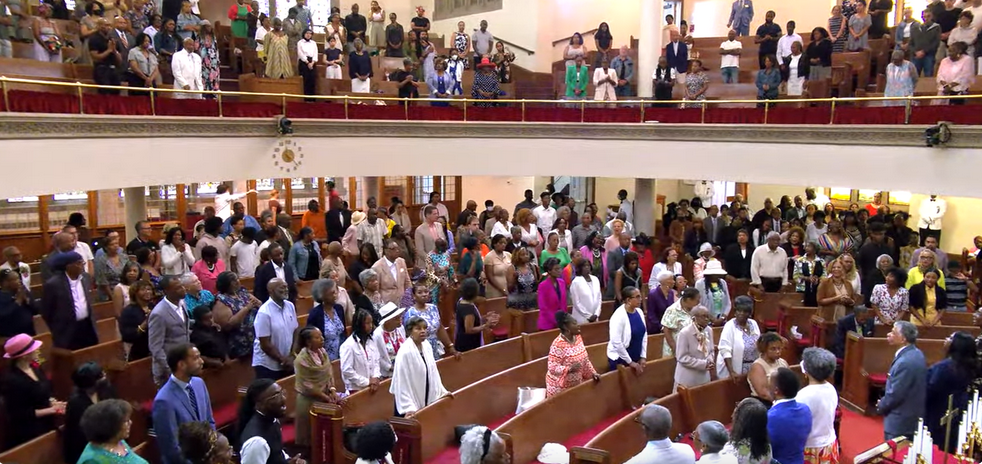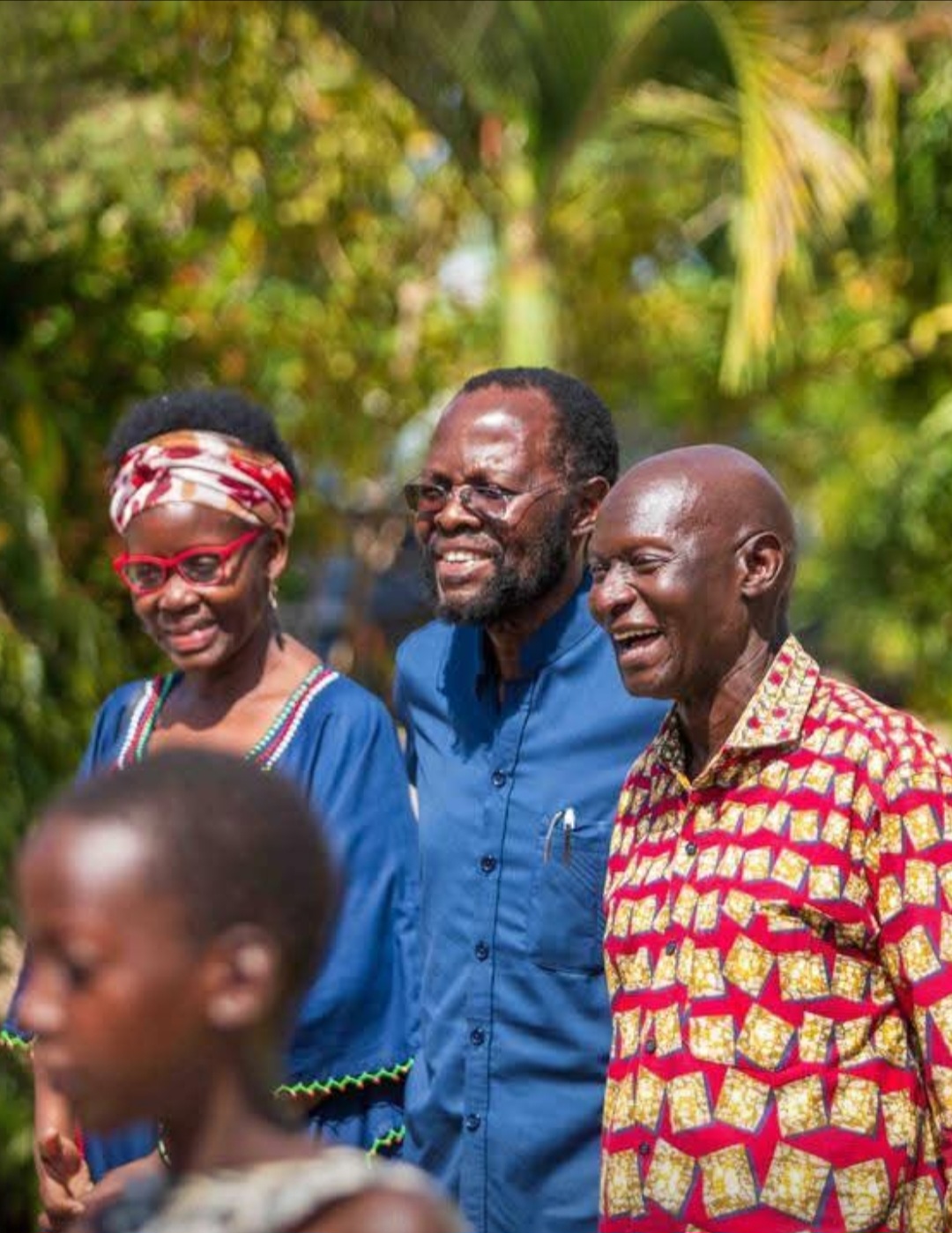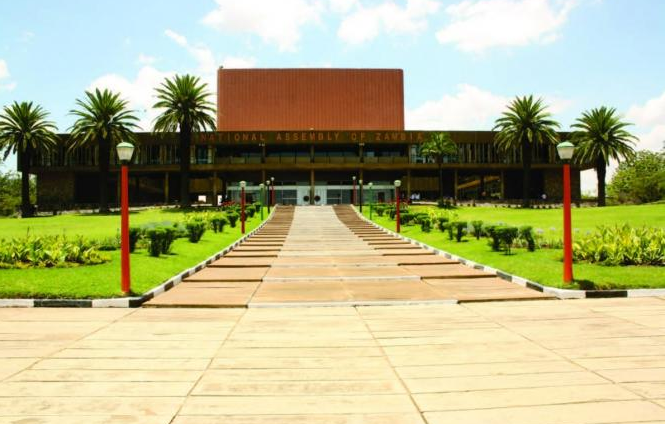By Paulo Mileno
Photos: Paulo Mileno\Abdias Nascimento. Photo: IPEAFRO
Abdias Nascimento was a key figure in the renewal of Pan-Africanism at the beginning of the 21st century. His Quilombist philosophy and dialogue with Afrocentricity helped reconstruct African and Afro-diasporic cultural identity, paving the way for the cultural and historical reconstruction of these peoples. In 2025, this discussion will gain new momentum at the 9th Pan-African Congress, to be held in Lomé, Togo, in Africa continent under the theme “Renewal of Pan-Africanism and Africa’s Role in Reforming Multilateral Institutions.

Quilombism as a Philosophical Proposal
Quilombism, a central concept in Abdias Nascimento’s work, goes beyond the physical territory of historical Quilombos, a spatial escape and resistance to the outside world, especially today, as it refers to a state of mind of liberation from our mental enslavement, aiming to recover our memory systematically violated for 500 years, erasing any trace of identity, ethnic roots, history, and culture of the African family trunk tree.

A painting by Abdias Nascimento with colors of Pan Africanism, Red, Black and Green and the symbols of the Orishas Ogum and Esú. Photo: Paulo Mileno

Another painting by Abdias Nascimento resignifying the Brazil’s flag with greeting of the Orisha Oxóssi. Photo: Paulo Mileno
Abdias Nascimento Filho (Abdias Nascimento’s son), explains: “The proposal of Quilombism is to value the experience of African and Amerindian peoples, creating a fairer society for those who formed the nations of the New World.”
This philosophy seeks the cultural and historical sovereignty of Africans and Afro-descendants, responding to the enslaving cultural erasure and colonial dominance over Black narratives.
Pan-Africanism: Strands and Conceptual Challenges
Although often associated, Pan-Africanism, Black Nationalism, and Afrocentricity are distinct concepts.
According to the professor at UFBA and former Shenuti of Afrocentricity in Salvador, Bahia, Gabriel Swahili, there are etymological differences and differences in objectives. The term Pan-Africanism is related to the notion of all of Africa, with the goal of uniting African peoples and states, regardless of ethnic origin. It is an idea of a continental government for all of Africa.
On the other hand, Black Nationalism arises from the notion that there are Africans with a common origin, ethnically identifiable, and that these people need to build autonomy and sovereignty as a people, which in the modern world is understood as a nation. Territorial control, cultural, economic, military, scientific autonomy, etc.
And so, as defined by Molefi Kete Asante, Afrocentricity ‘is a way of thinking and acting in which the centrality of African interests, values, and perspectives predominates. In terms of theory, it is the placement of the African people at the center of any analysis.
Therefore, it is not merely a theory; it is, rather, an approach, a way of being and existing in the world through which African people reclaim their centrality.
However, Abdias Nascimento exemplified how Quilombism, Afrocentricity, Pan Africanism and Black Nationalism and its strands could dialogue, proposing a renewed Pan-Africanism.
Carlos Moore highlights this: “On the international stage, Abdias do Nascimento played an important role in reconciling the three major strands of Pan-Africanism. Today, I have no doubt that this was only possible because he himself embodied, in a harmonious way, these three political strands. A man of the 20th century, by the turn of the 21st century he was already the outline of a future Pan-Africanism; a broad political movement based on respect for the differences between peoples, cultures, civilizations, and genders. A cultural movement in which the female gender, finally rescued from centuries of shame, finds itself once again in the pioneering position of civilization and the humanization of societies, a role it has always played in the history of the African world”
The Three Strands of Pan-Africanism
Carlos Moore identifies three main strands of Pan-Africanism:
First, the Manchester Pan-Africanism (early 20th century), focused on the fight against colonial domination and would be defined as ‘continentalist’ due to the colonial exploitation and domination in Africa. Although Sylvester Williams was considered the father of Pan-Africanism, Manchester Pan-Africanism was led by figures like W. E. B. Du Bois and George Padmore and has intellectuals like Caseley Hayford, Nnamdi Azikwe, Jomo Kenyatta, C. L. R. James, Eric Williams and Ras Makonnen.
Second, The second strand, called Nationalist Pan-Africanism, emerged at the beginning of the 1920s. That is, almost 100 years ago.
According to Moore, Marcus Garvey gained an influence like no other force in the African world. Garveyism aimed for economic, political, and cultural sovereignty, whether in Africa or in the African diasporas in the Americas, the Caribbean, and the Pacific
The third and final strand, in the same 1920s decade, but on the other side of the world, in the Francophone world, would be the Pan-Africanism of Négritude, with the theorization of raciality by militant intellectuals such as Aimé Césaire, Léon Damas, Léopold Sédar Senghor, René Maran, Lamine Senghor, Tiemoko Garan Kouyate, Kojo Touvalou Houenou, and the intellectuals of the Harlem Renaissance in the United States.
It is always interesting to observe the cultural exchange between the African diasporas, separated across the seas. While distinct, these strands converge in the struggle for the liberation of African peoples and their diasporas.
In 2024, the Conference of African Diaspora in the Americas, held in Bahia, served as a preparatory event for the 9th Pan-African Congress in Togo, Africa. Postponed again, the event raises the question: what tangible outcomes can this renewal of Pan-Africanism offer Africans and Afro-descendants?
Professor Gabriel Swahili warns that recovering historical memory is essential to breaking the Western hegemony over Black intellectuality. Molefi Kete Asante reinforces this point because:
“Slaves are not born. Slaves are made. But how you make slaves? You make a slaves by creating a lost memory. If you create a lost memory and create a Historical amnesia, then it becomes possible for individuals, don’t more remember and when they don’t more remember to who are connected, their owns traditions, they are following any traditions”.
Molefi Kete said too that without a philosophical basis, we can’t get to Pan Africanism. And philosophy basis is what Quilombism and Afrocentricity means.
The legacy of Abdias Nascimento, with his Quilombist philosophy and role in Pan-Africanism, remains as relevant as ever. As the world prepares for the 9th Pan-African Congress, the lingering question is: now will this be a real opportunity for Pan-Africanism’s renewal, or just another attempt to conserve the hegemonic control over global Black thought?
What can we expect from the 9th Pan-African Congress to be held in Togo, an African country governed by a dynastic dictatorship?
Paulo Mileno is an actor, filmmaker, cultural producer, writer, editorial advisor of Africa and Africanities Magazine and he was a researcher in the Nucleus of African Philosophy at the State University of Rio de Janeiro (Brazil). Mileno also contributes to Observatório da Imprensa (São Paulo – Brazil), Brasil de Fato (São Paulo – Brazil), Jornal do Brasil (Rio de Janeiro – Brazil), Black History Month (London – England), Ufahamu: A Journal of Black Studies from Los Angeles University -UCLA (Los Angeles – USA), San Francisco National Black Newspaper (San Francisco – USA), Black Star News (New York – USA), New York Amsterdam News (New York – USA) and Africa Business (Cape Town – South Africa). Reach him via [email protected]







